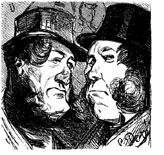
Homosexuality & Catholic Doctrine
FRIENDSHIP WITH GOD IS ULTIMATELY WHAT IT'S ABOUT
The official doctrine of the Catholic Church on the morality of homosexual acts is set out with brevity and clarity in the Catechism of the Catholic Church:
Homosexuality refers to relations between men or between women who experience an exclusive or predominant sexual attraction toward persons of the same sex. It has taken a great variety of forms throughout the centuries and in different cultures. Its psychological genesis remains largely unexplained. Basing itself on Sacred Scripture, which presents homosexual acts as acts of grave depravity, tradition has always declared that homosexual acts are intrinsically disordered. They are contrary to the natural law. They close the sexual act to the gift of life. They do not proceed from a genuine affective and sexual complementarity. Under no circumstances can they be approved.
The number of men and women who have deep seated homosexual tendencies is not negligible. This inclination, which is objectively disordered, constitutes for most of them a trial. They must be accepted with respect, compassion, and sensitivity. Every sign of unjust discrimination in their regard should be avoided. These persons are called to fulfill God’s will in their lives and, if they are Christians, to unite to the sacrifice of the Lord’s Cross the difficulties they may encounter from their condition.
Homosexual persons are called to chastity. By the virtues of self-mastery that teach them inner freedom, at times by the support of disinterested friendship, by prayer and sacramental grace, they can and should gradually and resolutely approach Christian perfection (#2357-9).
You May Also Enjoy
It’s a commonplace to say that homosexuality has metamorphosed within the memory of most from…
To accept our brokenness is not to resign ourselves to it or succumb to it. Our individual crosses must be carried along the path God has chosen for us, to Heaven.
Queers complain they feel "increasingly alientated by the Catholic Church."

